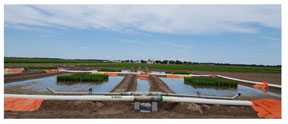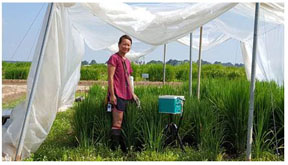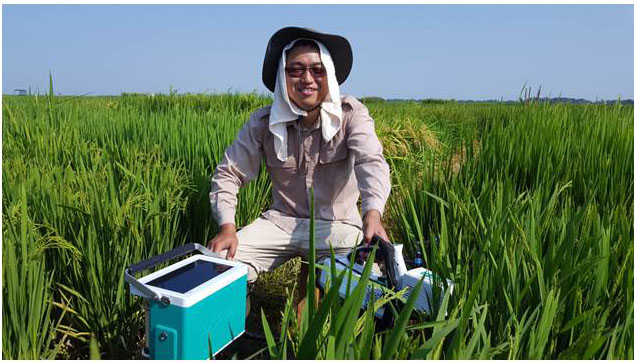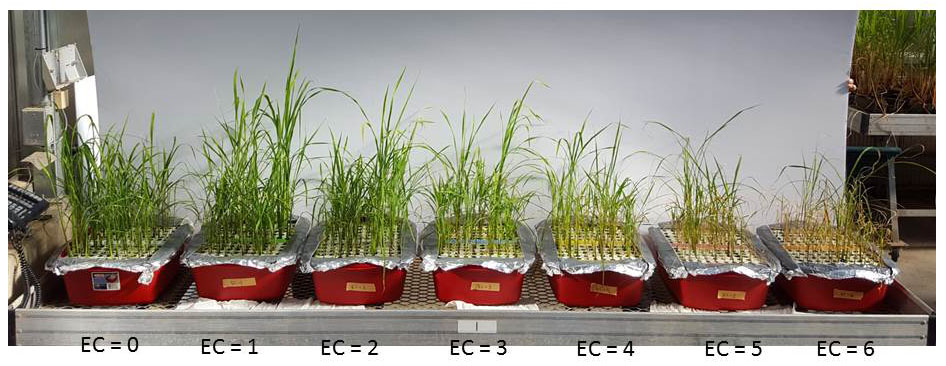| Rice Abiotic Stress Tolerance, page 3 |

|
Research Approach, cont'd
IIc. Flowmeter study: Goal: Study water use efficiency in AWD-responsive chromosome segment substitution lines (CSSLs). Collaborators: Anna McClung, Michele Reba, Chris Henry, Arlene Adviento-Borbe, Joseph Massey, Merle Anders.
 |
 |
|
A general layout of the flowmeter study where the amount of water applied to rice bay is measured throughout the cropping season. |
Tiffany measuring photosynthesis on rice CSSLs being grown under AWD in field under rainout shelter. |
IId. AWD-driven arsenic cycling in rice paddies
Naturally available arsenic in the soil can be easily taken up by the rice plant under typical flooded conditions. This experiment is to understand the role of AWD on arsenic (MSMA: monosodium methanearsonate) uptake by rice plant. Our hypothesis is that the water management shifts the soil microbial populations and available arsenic in rhizosphere for the uptake by rice plant. Collaborators: Anna McClung, Shannon Pinson, and Matthew Reed and Scott Maguffin (Cornell University).
III. Heat-stress tolerance:
Heat Stress at the reproductive stage of rice affects both yield (through spikelet sterility) and quality (through poor grain-filling capacity). We are studying diverse rice cultivars for agronomic, physiological, and quality traits that indicate tolerance to heat stress. Our goal is to identify genetic markers that can be used to develop new rice varieties having tolerance to heat stress. Collaborators: Anna McClung.
 |
| Visiting post-doc Haijun Zhao measuring various gas exchange parameters to determine photosynthesis efficiency among diverse rice germplasm in field on a hot summer day. |
IV. Screening for salt stress tolerance at seedling stage: When water is limited, problems can occur with high salt build up in the soil that damage the growth of young rice seedlings. This picture is an example where 20 different cultivars are being evaluated for tolerance to salt using 6 different levels of salt concentrations in a hydroponic system. Using this system we have screened USDA minicore collection, a mutant population, CSSLs, and have identified a few tolerant lines to discover novel traits for salt tolerance in rice . Collaborators: Anna McClung, Georgia Eizenga, Gioi Tran (CLRRI, Vietnam), B. Ward (Clemson University), R. Karthikeyan (Clemson University), and M. Cutulle (Clemson University).
 |
Click here to return to main page of Rice Abiotic Stress Tolerance.

